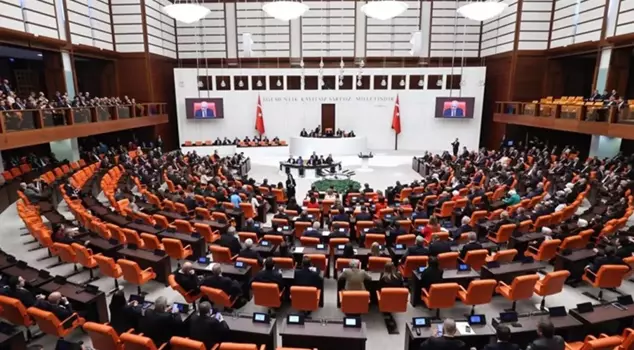
22.05.2025 01:50
The Grand National Assembly of Turkey (TBMM) has approved a new bill that includes significant changes affecting public institutions and organizations. With the newly adopted law, a age limit of 35 has been introduced for entry into public institutions. Additionally, special powers have been granted to TRT (Turkish Radio and Television Corporation) in the establishment of companies and in tender processes.
```html
In the General Assembly of the Turkish Grand National Assembly, the proposal for the 'Law on Amendments to Some Laws and the Decree Law No. 375' was accepted.
With this law, individuals authorized for tax audits will not be able to take any position or job in the institutions to which the taxpayers or their partners are directly or indirectly affiliated, or to enter into contracts for a period of 3 years after leaving their public duties.
CONDITION OF NOT BEING IN THE MANAGEMENT OF POLITICAL PARTIES FOR BOARD MEMBERS
According to the law; the President of the Dispute Court will be selected from among the members of the Constitutional Court (AYM). The appointment conditions for the members of the Information Technologies and Communications Authority are also being changed by this law. Accordingly, the members of the Board will be required to meet the conditions in the 'Civil Servants Law' and must not have held any position in the management and supervisory bodies of any political party or must have resigned from these positions.
35 YEARS AGE LIMIT WILL BE REQUIRED
Additionally, according to another amendment made in the 'Civil Servants Law'; a 35-year age limit will also be required for appointments made through special competitive examinations conducted by other public institutions, boards, higher boards, and organizations established by laws or presidential decrees.
THOSE WORKING IN THE PUBLIC PROCUREMENT BOARD WILL NOT HAVE CONNECTIONS TO POLITICAL PARTIES
With the law, new regulations regarding experts and assistant experts are being introduced. According to these regulations, experts and assistant experts can be employed based on administrative service contracts or labor legislation, regardless of the practices regarding the employment of contracted personnel, based on the presidential decrees regarding the organization of public institutions and organizations that do not employ personnel. The provisions of the 'Civil Servants Law' will apply to the recruitment of experts and assistant experts.
However, those assistant experts who do not submit their theses within the additional time given, do not take the exam, do not use their exam rights, or do not meet the foreign language requirement will not be able to become assistant experts and will be assigned to different positions. All legal matters related to experts and assistant experts will be discussed in labor courts. The law makes amendments to the 'Public Procurement Law'. Members who will serve in the Board must not have any past or current relationships with a political party, including candidacy and membership.
TRT BOARD OF DIRECTORS WILL BE ABLE TO ESTABLISH PARTNERSHIPS IN LINE WITH THE COMPANY'S OBJECTIVES
With the accepted law, amendments are being made to the 'Turkish Radio and Television Law'. According to the amendments, the General Director of TRT will be paid the highest monthly salary and bonuses received by a civil servant. The TRT Board of Directors may establish companies subject to private law, as long as it is in line with the institution's objectives, and may also establish partnerships with domestic or foreign real or legal persons. The Board of Directors may participate in existing partnerships or companies, as well as fully purchase or acquire domestic or foreign partnerships or companies, both within the country and abroad.
The procurement, sale, service, consultancy, construction, and transportation transactions of the companies established, purchased, or participated in by TRT, regardless of the institution and its share, will not be subject to the provisions of the 'Public Procurement Law and Public Procurement Contracts Law'. All procurement, sale, service, consultancy, construction, and transportation activities of the institution, as well as the tender processes related to these matters, will be regulated by a regulation based on the principles of transparency, competition, equal treatment, reliability, confidentiality, public oversight, timely and appropriately meeting needs, and efficient use of resources, taking into account the conditions required by broadcasting activities. On the other hand, regulations regarding the personal rights of TRT personnel are also being made with the law.
```